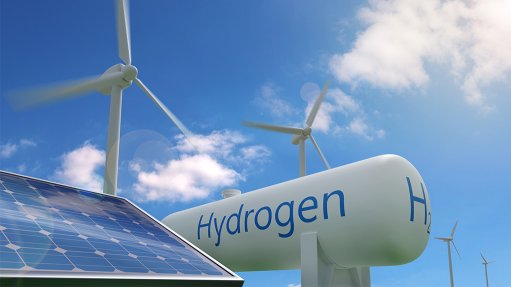
One of the challenges standing in the way of South Africa becoming a world-class green hydrogen producer is that South Africa is a water-scarce country, and that enormous volumes of water are needed to produce hydrogen, law firm Bowmans associate Marga Jordaan has said.
“[We] need to take into account sustainable water use for communities, which is also a constitutional right, and to weigh that up with the economic growth in respect of the export and production of hydrogen,” Jordaan said at a seminar at Bowmans' offices in Sandton on November 29.
She said South Africa could not afford to let the environment or society flourish at the cost of the economy, although the country could also never afford to have an economy flourish at the cost of the environment and society.
“There is a global notion towards sustainable development and, in South Africa, this concept has been tried and tested, most well known in the case of fuel retailers, where they specifically addressed sustainable development and that there will always be a balancing act,” she explained.
Owing to the fact that water is a scarce resource in many parts of the country, Jordaan pointed out that the immense logistical costs involved in transporting large volumes of water also needed to be weighed up.
“You won't always have water resources in abundance near your wind and your solar farms. So there would be a major cost implication for companies to be able to transport large volumes of water to these wind and solar farms for the purposes of producing [green] hydrogen,” she said.
In this regard, South Africa’s significant logistics, transportation and infrastructure challenges posed major barriers to the development of a successful hydrogen economy, Jordaan noted.
“Due to hydrogen sulphide density, it needs to be compressed or liquefied to occupy less space to allow for efficient transportation. These large quantities of hydrogen, which is extremely flammable, are very dangerous to transport and South Africa hasn't really yet explored exactly how their transportation is going to take place,” she explained.
However, challenges notwithstanding, Jordaan noted that South Africa was well placed to produce green hydrogen with zero emissions, making it a highly attractive investment opportunity for foreign investors.
“The framework currently is written in such a way that there are absolutely no restrictions in order to invest in these exciting technologies. In our quest to achieve net zero by 2050, South Africa has every single opportunity, just by virtue of its landscape and its climate, to become a major player in the production and the export of hydrogen-based fuels, products and chemicals,” Jordaan said.
Cabinet gave the green light for the implementation of the Green Hydrogen Commercialisation Strategy in October. This development comes on the back of the Hydrogen Society Roadmap, which aims to position South Africa as a major producer and exporter of green hydrogen.